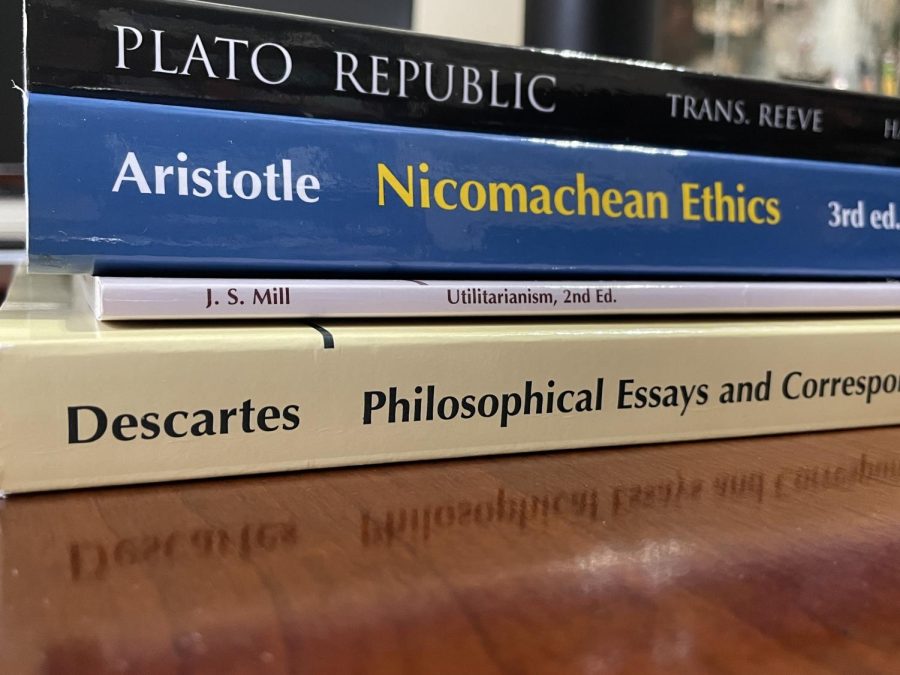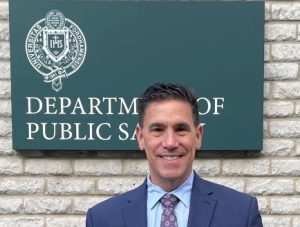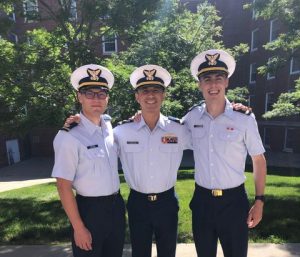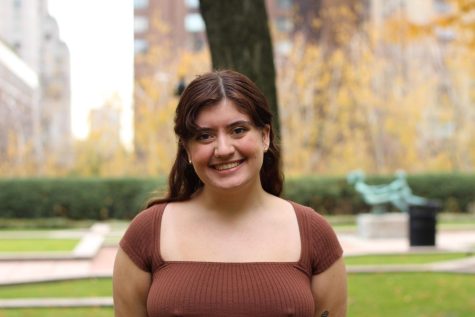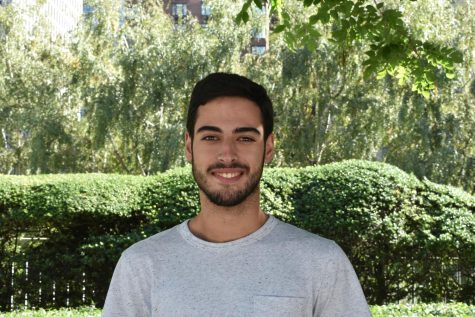Jada Heredia Awarded Philosophy Prize
FCLC senior Jada Heredia received the Jane B. Aron Memorial Prize in Philosophy
The Aron Prize is given annually to one FCLC senior majoring in philosophy.
December 27, 2021
On Nov. 16, the Fordham College at Lincoln Center (FCLC) philosophy department awarded the Jane B. Aron Memorial Prize in Philosophy to Jada Heredia, FCLC ’22.
First established in 1983, the Aron Prize is a $2,000 scholarship awarded annually to one Lincoln Center senior philosophy student in recognition of outstanding academic achievement in the field. The prize was made possible by a $25,000 donation from the former director of the J. Aron Charitable Foundation, Jacqueline Morrison, in 1983 and is named after Morrison’s mother, Jane Aron.
While last year’s ceremony was canceled due to the ongoing COVID-19 pandemic, this year the department was able to return to the traditional presentation during its annual Sullivan Lecture. During the event, Heredia was given a signed certificate and a signed copy of “Fieldwork in Familiar Places” by Michele Moody-Adams, Ph.D., the guest speaker at the Sullivan Lecture.
“The faculty at LC look for students that stand out in some way beyond just getting excellent grades in philosophy classes.” Jeff Flynn, associate chair of philosophy
In addition to facilitating the presentation of the Aron Prize, the Sullivan Lecture, inaugurated in 1985, honored the late Daniel J. Sullivan, who taught philosophy at Fordham for over 50 years. The event was sponsored by the philosophy department in conjunction with Fordham’s Jesuit community for several years and is now sponsored by the philosophy department. After the lecture, Laura Auricchio, dean of Fordham College at Lincoln Center, held a reception where guests could discuss the talk and congratulate Heredia.
“It’s very hard to select the winner,” Jeff Flynn, associate chair of philosophy for undergraduate studies, explained. “We always have lots of excellent students … (so) the faculty at LC look for students that stand out in some way beyond just getting excellent grades in philosophy classes.”
A recent recipient of the Aron Prize, Miriam Ambrosino, FCLC ’17, is currently pursuing a doctorate in philosophy at Stony Brook University. Recently, Ambrosino received the Lilly Fellowship, which provides three years of funding to doctoral candidates to foster connections between Christianity and higher education for scholars in humanities and the arts.
Another recent recipient of the award is Sanjana Rajagopal, FCLC ’18 and Graduate School of Arts and Sciences ’24. Rajagopal received her master’s degree in philosophy from Fordham in 2020 and is currently pursuing her doctorate. She focuses on political philosophy, specifically the work of Hannah Arendt, as well as philosophy of religion. Her writing on the meaning of Hindu philosophy was recently published by the American Philosophical Association.
Flynn explained that the philosophy faculty consider students’ post-graduate plans when deciding the recipient of the Aron Prize, such as whether a student intends to pursue higher education after receiving their bachelor’s degree. Heredia is currently enrolled in Fordham’s 5-Year Accelerated Master’s Degree in Ethics and Society, taking graduate courses in philosophy during her senior year.
Shiloh Whitney, associate professor of philosophy, explained that Heredia is “incredibly insightful and courageous about taking big, ambitious swings in her paper projects that reach for those insights,” and “Her thinking has a graduate level of complexity.”
“It was genuinely difficult to keep up with her various lines of inquiry and still deliver what is essentially an introductory level class for other students.” Jeff Flynn
Flynn, who first encountered Heredia as a student in the introductory level course, Philosophical Ethics, similarly praised Heredia’s talent and expressed that from day one, he thought she could succeed at graduate school in philosophy.
“It was genuinely difficult to keep up with her various lines of inquiry and still deliver what is essentially an introductory level class for other students,” Flynn said.
Continuing to praise Heredia as unusually advanced for an undergraduate student, Flynn characterized her as “without exaggeration … easily the most philosophically curious student I’ve ever taught in (Philosophical Ethics) — always pressing on ideas and arguments in a highly sophisticated way.”

